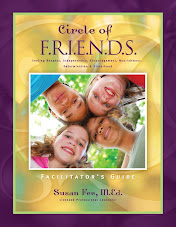
The current economy has a lot of people out of work and searching for a job. If you're one of them, you may be feeling
discouraged. Many of my
clients, fellow professionals, and close friends are out of work too, so I have personally heard many stories. While it's true that you must take your job search seriously, I'm going to go against conventional wisdom and suggest that you
do not spend eight hours a day doing it.
Here's why: it's depressing to sit in front of a computer all day scanning job sites and submitting online resumes or reading the same want ads. Some people get too hung up on perfecting their resume or cover letter, having spent up to a year out of work, they sit and lament over the smallest detail. After years of
coaching and hearing success stories, I'm absolutely convinced that
opportunities are revealed through connections to people, not job sites. Therefore, if you're out of work, you need to be spending the majority of your time around current contacts and meeting new people. They will lead you to your next job.
But, I find the more depressed job seekers get, the less social they become. And, when they're around people, they have nothing passionate or interesting to share. That's called poor
marketing! Here's what I suggest to my clients: spend 1-3 hours every day seriously searching and applying for positions. Spend the rest of the day meeting with people, pursuing hobbies, learning something new, or helping others. When you're doing something you're passionate about, you meet other people who share the same interests. They meet you at your best and perceive you as a vibrant, employable person. You have something to discuss other than the fact that you're jobless, therefore you're not complaining, or appearing too desperate.
I'm not trying to minimize the need for income. I realize that it may sound frivolous (or impossible) to spend time "playing" when you have bills to pay. My contention is that
you will find employment sooner with this approach than you will by spending all day isolated and feeling depressed. With that in mind, here's a list of 26 things to do while looking for a job:
1. Read or re-read a
classic novel.
2. Join a book club.
3. Start a blog.
4. Train for a running or bike race.
5. Volunteer at an animal shelter.
6. Plant a garden from seed.
7. Coach a child's sport team.
8. Try a new
cooking recipe.
9. Renew an old friendship.
10. Organize a neighborhood potluck.
11. Clean and organize a cluttered space in your house.
12. Hike a trail that you've never explored.
13. Open a dictionary and learn a new word. Use it throughout the day.
14. Host a movie night. Invite 3 friends and ask each to bring an additional guest that you don't know.
15. Read your local newspaper in its entirety (not just the job listings). Share/discuss something new you learned with a friend or neighbor.
16. Volunteer to work at a community festival.
17. Volunteer to work a water station at a running race.
18. Schedule an informational interview with someone working in a field of your interest.
19. Join and
participate in a local church.
20. Donate blood to the
Red Cross.
21. Research a native bird or flower. Take a walk in a local neighborhood or park and see how many times you can spot it.
22. Write a handwritten letter to a friend, thanking him or her for being part of your life.
23. Volunteer to hand out programs or usher at a local theater in exchange for seeing the show for free.
24. Learn a new language by renting an audio program from the library. Test your skills by watching a foreign film.
25. Join
Toastmasters and improve your public speaking skills.
26. Download my
free E-Seminar,
How to Speak So Others Listen. Share a tip you learned with someone else.
Have more ideas? Feel free to add them by posting a comment. I'd love to hear your thoughts, experiences, and success stories with this approach, so do share.
 Have you ever noticed that those claiming life's unfair never make the same observation when unjustly receiving something? Shouldn't the same level of indignity be displayed at finding a coin on the sidewalk, hitting a green traffic light, speeding and not getting a ticket, all the times when you didn't catch a cold, sunshine on a day off, or having the door held open by a stranger? Why not protest then?
Have you ever noticed that those claiming life's unfair never make the same observation when unjustly receiving something? Shouldn't the same level of indignity be displayed at finding a coin on the sidewalk, hitting a green traffic light, speeding and not getting a ticket, all the times when you didn't catch a cold, sunshine on a day off, or having the door held open by a stranger? Why not protest then?



































